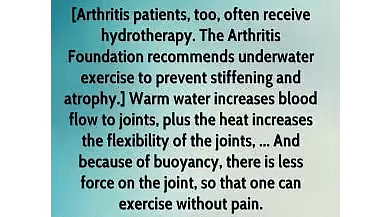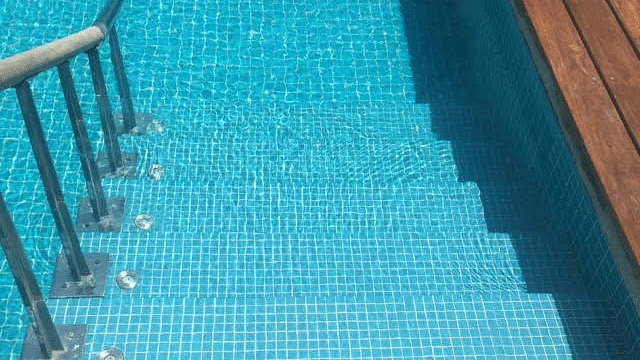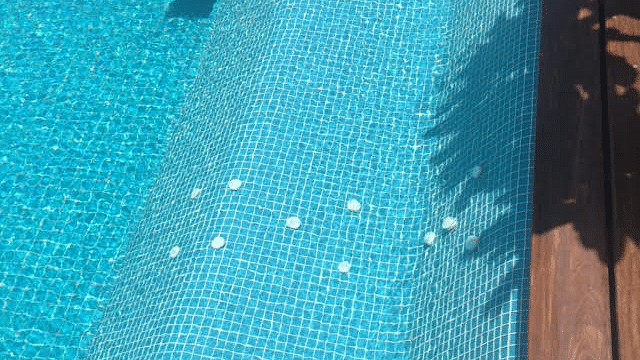- Trade Fairs in Chennai
- A Helpful Guide to Shopping in Chennai
- A Stay in Chennai Before Travelling to Pondicherry
- Tips to Stay Cool in Summer
- The Perfect Summer Vacation
- The Moon And Sixpence
- Travel Experience
- A Holistic Approach to Healing
- Fitness
- Hydrotherapy
- Couple Spa Experience
- Healing Summit
- Incentive to be Mindful
- Types of Travellers
- Grand Shopping for a Big Fat Indian Wedding
- Souvenirs from Chennai for Your Loved Ones

Image Courtesy: thecleanse.co.uk
Written by Weena Pradhan, HabLife Evangelist
If painful joints are not letting you exercise, all is not lost. If you are convalescing from an illness and wish to work out, do not lose hope. You can look to water for help, hydrotherapy will come to your aid. The world over, there are thousands afflicted by different kinds of pains, particularly osteo-arthritis and rheumatoid arthritis, they work out under water. Hydrotherapy is a blessing to aching muscles and inflamed joints.
What is hydrotherapy?
Hydrotherapy is the use of water to treat a disease, pain or to maintain health. Water is proven to have many healing properties :
- Water can store and carry heat and energy.
- Water can dissolve other substances, such as minerals and salts.
- Water cannot hurt you, even if you are sensitive to your surroundings.
- Water is found in different forms, such as ice, liquid, or steam. Ice may be used to cool, liquid is used in baths and compresses at varying pressures or temperatures, and steam is used in steam baths, or in inhalations.
- Water can help blood flow.
- Water has a soothing, calming, and relaxing effect on people, whether in a bath, shower, spray, or compress.
- Exercise in water takes the weight off a painful joint while also providing resistance.
The benefits of exercising in water
Some of the benefits of water exercise include:
- Increased muscle strength, posture and balance
- Enhanced sense of wellbeing, mood and sleep quality
- Greater mobility and flexibility of joints
- Improved endurance and fitness
- Eases stiff joints and relaxes sore muscles
- Reduced pain and fatigue (tiredness)
Ask regular swimmers, they will tell you how a general feeling of wellness sweeps over them, every time they do their laps. Why, even beginners have reported feeling light in their bodies and energetic after their dips. Hydrotherapy differs from swimming in that it involves special exercises done in relatively warm water with a specified water temperature.
What is hydrotherapy used for?
Hydrotherapy is used to treat many conditions, but we are going to focus in this article on arthritis, joint muscle and nerve problems. Other conditions that can be alleviated through hydrotherapy are acne, colds, depression, headaches and stomach problems. Tepid water can stimulate stress–reducing hormones, while cold water is harnessed to reduce inflammation. Alternating hot and cold water is known to stimulate blood circulation and improve immunity. Hydrotherapy is safe and an ideal way to exercise during pregnancy and for the advanced in age – blog posts on that coming soon.
In many hydrotherapy treatments, herbs and essential oils are added in steam and sauna treatments, with steam as a carrier of essential oils – to be inhaled to treat respiratory issues. Since the late 1990s, it has even been used in critical care units that target a variety of conditions, including disorders of the nervous system like the Guillain-Barre syndrome. In other cases, to infuse a general feeling of well-being similar to therapies in spas.

How safe is hydrotherapy?
Generally safe if administered properly by trained therapists. A discussion with your doctor is, however, a must before you opt for hydrotherapy. Different people react and respond differently to it, just like most other treatments. We must remember that hydrotherapy is an alternative therapy, at most it can complement the primary medical therapy. Hence it is not advisable to forego your conventional medical therapy.
While hydrotherapy works wonders for general fitness and flexibility, certain conditions like arthritis and rheumatism show tremendous improvement.
How does hydrotherapy work for arthritis and rheumatism?
- Since the temperature of the water in the pool is regulated and monitored, the warmth of the water aids in letting your muscles relax and eases pain in your muscles/joints. It is best to first condition your body in the tepid or warm water by just wading, walking around, or just being, before you begin proper exercises.
- Water supports your weight and allows you to increase your range of movement of your joints.
- Water provides resistance, hence by pushing or lifting your arms and legs against water will result in improved muscle strength.
- Hydrotherapy exercises can be customised to target specific parts of your body, and keeping in mind your medication.
- Activities such as stretching or walking through water can exercise the joints without putting them under strain.

There are scientific studies to show that hydrotherapy benefits arthritic and rheumatism patients hugely. Back pain is another condition that can be treated effectively with hydrotherapy.
A word of caution: Since water provides that extra support, one is likely to overdo the exercises. Consult your physiotherapist or even better, work under his/her supervision till you have understood your capacity and are well on your way to recovery.
You don’t know swimming? No sweat!
The pool is quite shallow in most cases (about chest height). Some pools come in gradient heights, so you can exercise in your comfort zone. Steps that lead you down into the pool along with handrails offer support if you do not feel like a fish! Either way, water is fun and soothing to be in, so make the best of it.
When is hydrotherapy not advisable?
Certain health conditions may either not permit hydrotherapy or be best avoided for reasons of hygiene. At all times, inform your physiotherapist should you have these issues:
- A wound or skin infection
- A virus or a stomach upset
- A raised temperature
- High or low blood pressure
- Breathing difficulties
- A kidney condition requiring dialysis
- Angina or heart problems
- Incontinence
- A chest infection
- Chlorine allergy
- Uncontrolled diabetes, asthma or epilepsy.
How long should hydrotherapy continue?
At the end of the prescribed course of hydrotherapy with your therapist, you will have gained a certain amount of confidence, and the healing would have been in process. Your therapist will then suggest that you continue with the prescribed exercises on your own.
Some pools have designated timings when the temperature of the water is raised to facilitate hydrotherapy sessions. Sign up for those hours. Now that you are comfortable in water, take swimming lessons if you are a novice, it is a wonderful exercise that builds your stamina, tones your muscles and what's more, is a fun way to exercise.
Safety suggestions
And finally learn to be safe:
- Have your therapist by your side, but a good way to warm up is to swim gently or go for a ‘walk’ through the water.
- Building up fitness is a gradual process, so begin with no more than 20 minutes of exercise in the beginning.
- If you feel light-headed, sick or dizzy at any stage, get out of the water.
- Don’t rush yourself, if you feel out of breath, slow down.
- Perform each movement as gracefully and smoothly as you can.
- Keep the body part you are exercising under the water. This may require you to squat or bob down at times.
- If a movement causes pain or discomfort, stop immediately.
- Drink plenty of fluids during and after exercising.
- If you have painful joints or sore muscles for more than a few hours after your class, try to go a little slower next time.
Hablis Hotel Chennai sports an infinity rooftop-swimming pool that is often used by physiotherapists to treat painful conditions like arthritis and rheumatism as well as for general fitness. Well-appointed steam and sauna, chilled shower and pool jacuzzi only add to the therapy. We quote here, one such case of one of the hotel’s guests, with her permission:

Jean’s Story (name changed to secure privacy)
Many people have heard of rheumatoid arthritis, but do you know how paralysing it can be to live with? Well, Jean sure did.
Jean was diagnosed with rheumatoid arthritis after suffering from a broken foot that healed, but the pain never subsided. Little did she know then, that she had been suffering from rheumatoid arthritis for a while, prior to that incident. Along with rheumatoid arthritis, Jean had to battle with obesity which prevented her from pursuing any kind of aerobic activity.
The diagnosis of her condition led her to the Hab-Life pool at Hablis Hotel, Chennai and its outdoor Fitness Centre. Due to obesity issues and lack of physical activity in her past, Jean started her therapy with baby steps. The physiotherapist at the hotel had her begin walking inside the pool for 8-10 minutes at a time. Jean faced problems walking up the stairs and complained of knee pain.
Due to the buoyancy of the water, Jean was able to walk carrying only 15% of her body weight. What she could not achieve on land, she could under water. Research states that working out under water removes up to 85%- 90% of body weight, while relieving pressure from the joints.
Jean progressed gradually in her rehab and she surprised herself! She shed her excess weight, got a better body contour later. From 8 to 10 minutes, she progressed to 35-40 minutes of walking in the pool. That was a huge accomplishment for her. From thereon Jean headed to work out on the aqua gym equipment such as cycling, rowing, striding and now jogging in the water – something she has never done before.
Jean has not only improved, but she has also exceeded her own goals and expectations. But the biggest blessing that came her way was the painless condition despite intense workouts.
Jean has now taken her fitness to a whole new level. Her aqua-therapy sessions consist of walking with progressive speeds, resistance walking with aqua equipment and various other resistance-based exercises. Jean’s use of the underwater treadmill has greatly improved her balance, she quotes, something that is very important especially with age. She is able to walk underwater and release her grip from the bars for extended periods of time, thereby gaining in confidence and optimism.
Jean is just one example of how hydro-therapy in the Hab-Life pool has altered the way people have handled pain and obesity. Consult your doctor if you are struggling with any of the health issues listed above and if you need hydrotherapy. The infinity swimming pool at Hablis Hotels is an ideal location for you to take hydrotherapy sessions in a calm and serene ambience. Your physiotherapist can accompany you and coach you to heal. The hotel offers wellness membership plans, you can even pay by the day. There is also the HabLife Spa if you are looking for Spa therapy.
Contact Hablis’ Chief Wellness Officer at 044 4023 5555 for more details and enjoy a healthy and rejuvenating stay at our plush hotel near Chennai Airport.